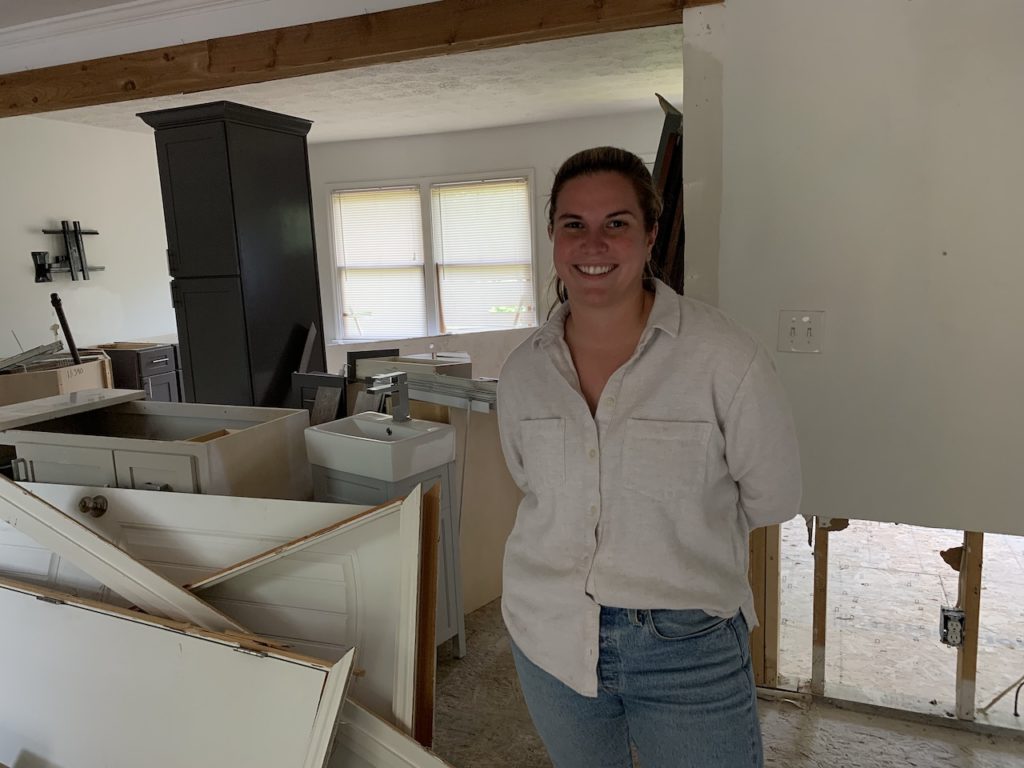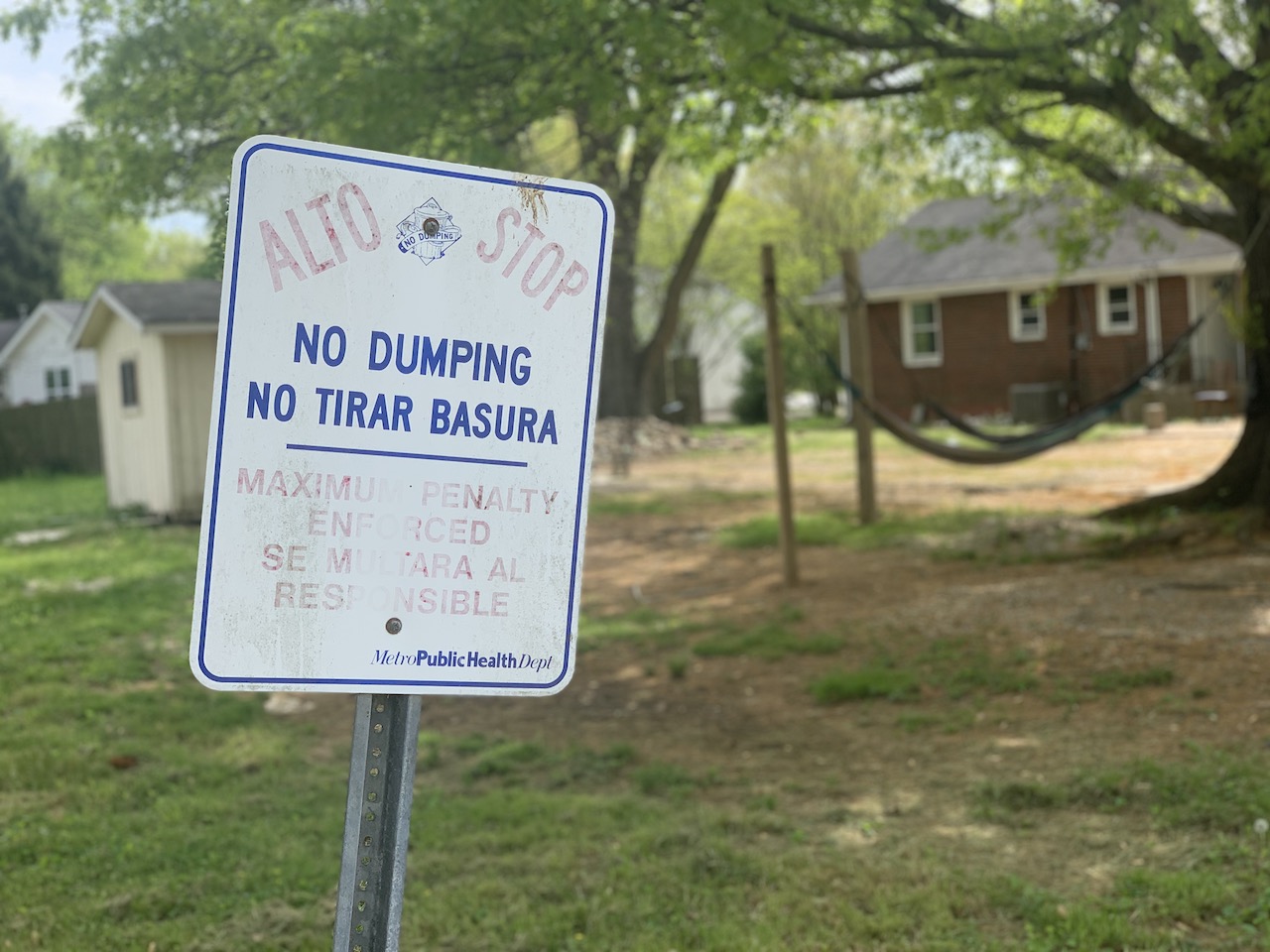
In more than 30 years, the creek in Mary Jane Ingram’s backyard has risen to the house two times. Once, in the historic flood of May 2010 — and then in late March.
“I’m flooding again!” she exclaimed, while taking some video around midnight. “Holy comoly!”
Murky, brown water washed around her ranch-style home off Edmondson Pike, trapping her and her dogs inside. Dozens around the city had to be rescued. Several died, including along Seven Mile Creek, which ripped through Ingram’s neighborhood.
In the days after, she launched into cleanup mode, just like in 2010. Though this time feels different. She realizes she needs to be prepared for heavier rainstorms.
“This is the season for it, but they’re getting worse every year,” she says. “So now my 100-year flood plain is an 11-year flood plain.”
Climate change is a big part of why the Federal Emergency Management Agency and the Army Corps of Engineers are buying up more homes and knocking them down.
Increasingly, cities are fighting floodwaters by — more or less — getting out of the way. The federal government buys the houses just to tear them down. A federal disaster declaration could trigger another round of buyouts for flooded homes in Nashville.
But being eligible for a buyout doesn’t mean people will take it.
Buy-in for buyouts
 Blake Farmer WPLN News (file)
Blake Farmer WPLN News (file)So far, 15 homes have been purchases along Seven Mile Creek through a program with the Army Corps of Engineers. Most have signs telling people not to dump trash.
In Nashville, some homes never should have been built where they are in the first place, says Sonia Allman of Metro Water Services. She says the flood plain building restrictions weren’t in place until the 1980s.
“A developer could purchase a piece of farmland … and they didn’t pay attention necessarily to low-lying areas along creeks,” she says.
Since Nashville’s 2010 flood, which swamped even landmarks like the Grand Ole Opry House and Schermerhorn Symphony Center, the city has aggressively pursued buyouts — mostly through a partnership with FEMA — paying fair market appraisal values to 400 homeowners, then clearing out the homes.
“Many of these areas are turned into parks. They are turned into community gardens, and those property owners are not stuck in a home because of the history of flooding,” she says.
So far, a federal disaster has not been declared for the March flash flooding. But if it is, Allman says the city plans to ask for money to do even more clearing of the flood plain. In fact, the water department is collecting letters of interest at this email address.
Thanks, but no thanks
But buyouts — while voluntary — aren’t always widely welcomed in the neighborhoods where they’re available.
Along Seven Mile Creek, the city has already purchased 15 homes through a program with the Corps of Engineers, which has just approved another 85 for purchase. The water department has sent reminders of the program, and a local council member has been going door-to-door to gauge interest.
Residents, though, are largely gutting their homes in preparation to rebuild instead.
“It just seems strange to me that y’all’s best solution is to flatten houses,” says Baylie McDaniel, a resident whose home backs up to one house that has already been torn down. “We’re talking about a creek.”
McDaniel is a teacher in Metro Schools. She and her husband had more than a foot of water in the main level of their home during last month’s flooding, meaning everything below that has to be replaced. It will likely take a year to rebuild.
They were hoping the most recent flooding might start a more urgent conversation about controlling the creek with dams or even just cleaning out the drains. Because if her house is deemed eligible for a new round of buyout offers, it could take a year or more to finalize.
“For now, it’s just kinda like, we’re gonna rebuild it and hope for the best for the next couple of years, I guess,” she says.
Buyout complications
McDaniel says the house still seems far more valuable as a place to live than an open space, even if she decides to move and rent it out or sell. Flood-prone or not, houses are selling like hotcakes right now in McDaniel’s neighborhood.
The booming real estate market is complicating the buyout equation. Aaron Farmer lives a few houses down and says he and his husband already have an offer from the last buyout program.
“However, you also have to think: If I’m going to sell my house, where am I going to go?” he asks.
Even if the government paid top-dollar, the process takes so long, he says it’s likely his house would be worth even more in a year or two.
“I don’t think there’s going to be a lot of interest in it, honestly,” he says. “A few people, they may leave, but the majority of my neighbors, we intend to stay.”
Though many also say they may get better flood insurance — just in case.

